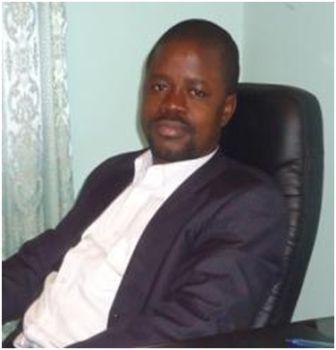
By John Pa Baimba Sesay-China :
On the 14th of December 2012, President Ernest Koroma delivered a statement at the House of Parliament on the occasion of the state opening of the first session of the fourth parliament of the second republic of Sierra Leone. Delivering a 106 paragraphs statement that lasted for over one hour, President Koroma spoke about his determination to ensure Sierra Leone’s transformation in line with the provisions in the Agenda for Prosperity, a blueprint for Sierra Leone’s development in the next five years. With thunderous applause from MPs, from both the political divide, he highlighted series of development initiatives for the country, ranging from his desire to utilize the youthful population for Sierra Leone’s transformation and drive to prosperity, to deepening the process of decentralization following years of its reintroduction, among other initiatives.
JOHN BAIMBA SESAY :
For the purpose of this article, I will concentrate on the desire on the part of President K0roma to strengthening our democratic credentials, through the process of decentralization. The reason being, I developed so much interest in the decentralization process, having literally worked with the local councils when I was an Assistant Producer at Talking Drum Studios, producing a weekly radio magazine program on the nineteen local councils across the country. Also by 2010, when pursuing my Master of Arts (Mass Communication), I wrote my thesis on the critical role of decentralization in strengthening Sierra Leone’s democracy and good governance.
Deepening Decentralization:
The present government of President Koroma has practically given serious attention to the process of decentralization. The leadership role that Ambassador Dauda Kamara played in fostering the decentralisation process in the last five years was just too commendable. Much was achieved by this government since it came to power in promoting the devolution exercise and this had to do with the experience and dedication to service by Hon. Dauda Kamara coupled with the great political support he got from President Koroma. Despite the enactment of the LGA 2004 by the Tejan Kabba (h) that provided for the decentralisation and devolution of functions, powers and services to local councils and for other matters connected therewith, it is under the Koroma administration hat we saw a realistic approach to the process, through the devolution of a number of functions from MDAs to the councils and in also transmitting funds from central government to the councils. President Koroma believes that the process is as relevant to the development of the country as it is, also to the success of his government in the next five years.
Minister Dauda Kamara keeps pushing the decentralisation process in Sierra Leone
In his speech referred to above, he dedicated six paragraphs to talking about what his plans are, towards sustaining the country’s democracy by deepening the decentralization process. In paragraph 84, he spoke of how his “…Agenda for Prosperity will treat decentralization as an important strategic intervention for the promotion of inclusive and diversified growth, reducing poverty, building local economy and delivering effective services needed for improved wellbeing of the people and prosperity of the nation.” There is also a commitment on his part, as contained in paragraph 85 to “ roll out the new decentralization policy and conclude the review of the necessary legislation especially the Local Government Act 2004…” and will practically continue to facilitate timely, predictable and increased performance-based transfers to local councils. The decision to deepen the decentralization process in Sierra Leone could not have come at the right time like this, given that since it was reintroduced some eight years ago, there has been the urgent need for a thorough review of the process, to see what impact has been made, the challenges it is faced with and look out for possible ways of improving on what has been achieved over the years. I have always advocated for a review of the Local Government Act 2004, given that there are a lot of loopholes that have always created some sense of conflict between the councils, our chiefdom authorities and even our elected Members of Parliament. This is especially so in line with functions and limitations.
The same paragraph 85, referred to above, went further to suggest that the government will “provide direct financial incentives for Local Councils to fully enhance local revenue potentials, and ensure that local revenue contributes meaningfully to local development….”Above all government will introduce legislation on local government finance and property taxation that clearly establish procedures for revenue collection and sharing between local and chiefdom councils and the administration of property rates, respectively. This is practically reasonable and very encouraging. The aspect of who collects what revenue is a challenge between the councils and chiefdom authorities.
Transparency and accountability:
President Koroma, in paragraph 86 of his speech committed his government to continuing with the promotion of transparency and accountability in local governance by making local councils directly accountable for their actions to their citizens and nationally while adhering to the best practices of open government. The promotion of a transparent and accountable government has been a core value in the present political administration. This has been one of, if not the only government in the sub region to allow the anti graft commission with prosecutorial power. And promoting an open government is not only limited to the central government, but takes into cognizant the crucial role of the local councils and the need for them to be as opened and accountable as possible. This is why the local government act is very clear in terms of what is expected of councils and councils, from the viewpoint of promoting transparency and openness in governance.
Part XV of the Act provides for the councils to be transparent, accountable and ensure public participation. Sections 103 and 104 of the Acts provide for the councils to comply with requirements of the Anti Corruption Commission. Specifically, On a more specific note, section 107, subsection 1 provides, that “Local councils shall post on a notice board in a conspicuous place on the premises of the council and on a notice board in each Ward for at least twenty-one days– (a) monthly statements of financial accounts; (b) annual income and expenditure statements; (c) inventories of assets of the local councils; (d) bye-laws and notices relating to tax rates and fees; (e) minutes of council meetings; and (f) development plans…” This is one way of ensuring transparency in the councils but it has often been as challenging to be complied with, as also meeting the provision for devolving all of the functions as contained in the Third Schedule of the Act. The councils and especially the line ministry may even want to look at these functions to be devolved, because even when there is the overriding political will on the part of the central government, the process of devolution has always been met with the challenge of the needed personnel. For instance, if a function like Fire prevention and control is to be devolved to councils, it means, personnel should go along with the function. But in situations where in the needed personnel are not as adequate as needed, it would mean, devolving the function, but the councils not been able to perform such a function. So this is a challenge.
It therefore would be prudent and also timely for the line ministry, in this case, Local Government Ministry to be well capacitated and provided with the enabling environment to be able to fully monitor the operations of the councils across the country and see how they could be able to also recruit the needed human resource. Basic and regular trainings can be a starting point, especially in training those who may have worked in the councils but their terms not reviewed by the citizenry, but have got the know-how about council operations.
Community participation:
The introduction of the councils was aimed at ensuring service delivery at the local level and in also ensuring full community participation in the development of their localities. Community participation is crucial to the success or failure of the decentralization process. Section 108 of the Act provides that the Ministry (i.e., Local Government Ministry) shall promote participatory processes in local councils and encourage citizen’s inclusion and involvement in governance. But how can this be ensured is left open. Take for instance, following the introduction of the councils in 2004, there was a rapid response program, which was introduced by government, designed to ensure, the councils produced results within a 100 days period. But for the exemplary performance of the Bo City Council, (especially during the Dr Wusu Sannoh era),the councils in Pujehun and Bonthe city had their own stories to tell which were not as encouraging as was expected. In the Bonthe Municipal Council, for instance, the council decided to embark on the construction of an Abattoir, contrary to the needs of the people at the time, which was fixing up a landing quayside since it is an island. The people literally demonstrated and it had to take the intervention of Search For Common Ground/Talking Drums Studios for both the community and the council to reach a common ground. That was a challenge having to do with community participation in the running of the councils. If the people had been properly consulted on their needs at the time, it surely would have been a landing site
The ward committee members also have a major role in deepening the decentralization process in Sierra Leone. A ward committee, according to section 95 (2) of the LGA 2004, shall consist of (a) every Councillor elected from that ward; (b) the Paramount Chief of the Chiefdom, in the case of localities with a system of chieftaincy; and (c) not more than ten other persons, at least five of whom shall be women, resident in that ward and elected by the ward residents in a public meeting. They are there, to among other functions (a) mobilise residents of the ward for the implementation of self-help and development projects; (b) provide a focal point for the discussion of local problems and needs and take remedial action where necessary or make recommendations to the local council accordingly; (c) organise communal and voluntary. From this provision in section 96, you will come to appreciate the roles of these ward committee members when they are fully utilized for they practically know the need s of their localities. They however should be seen working in tandem with the overall council in a given district or city if they are to be successful. But the challenge of these people being able to effectively understand what their roles are, as ward committee members is also very crucial. So the desire on the part of President to ensure community participation, more transparent, open and accountable councils just shows how realistic and sincere the President is, in terms of his dreams for a better for Sierra Leone.
The President has spoken, he is determined and it now demands that we come together and work as a country, devoid of our political divides for the good of all. Supporting the President call for national transformation is just too great and demonstrates love for country.

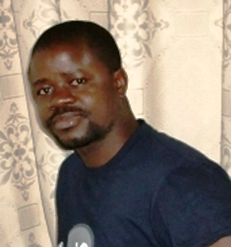
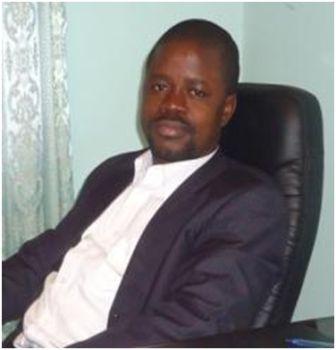


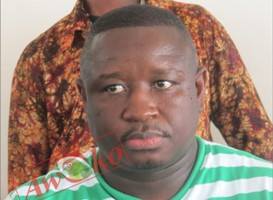
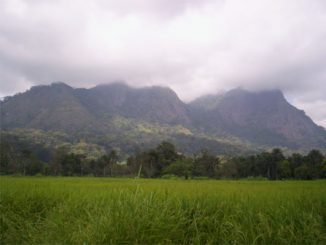

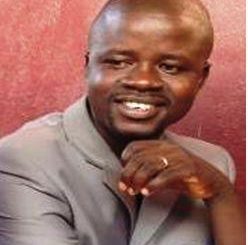
Leave a Reply